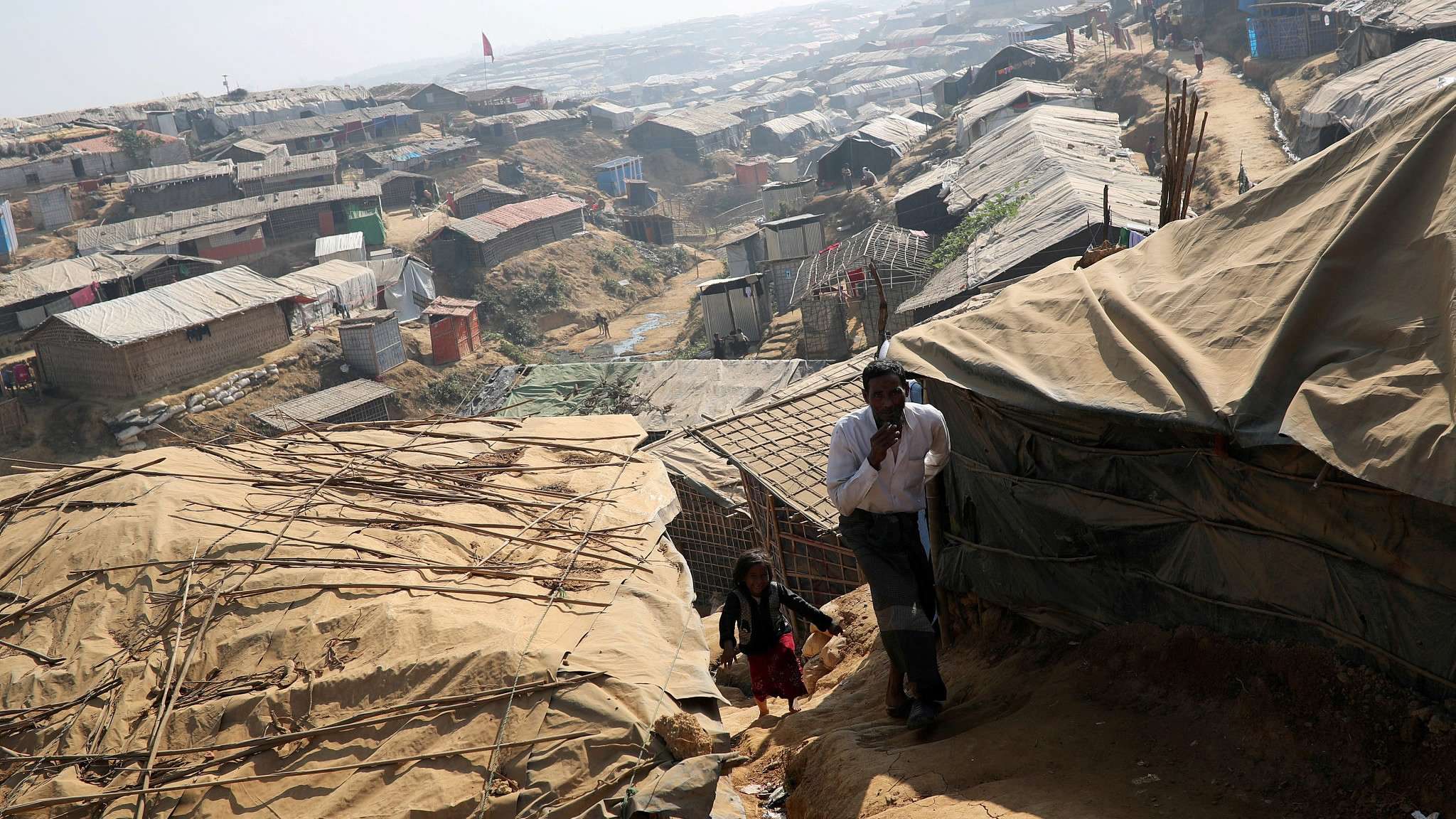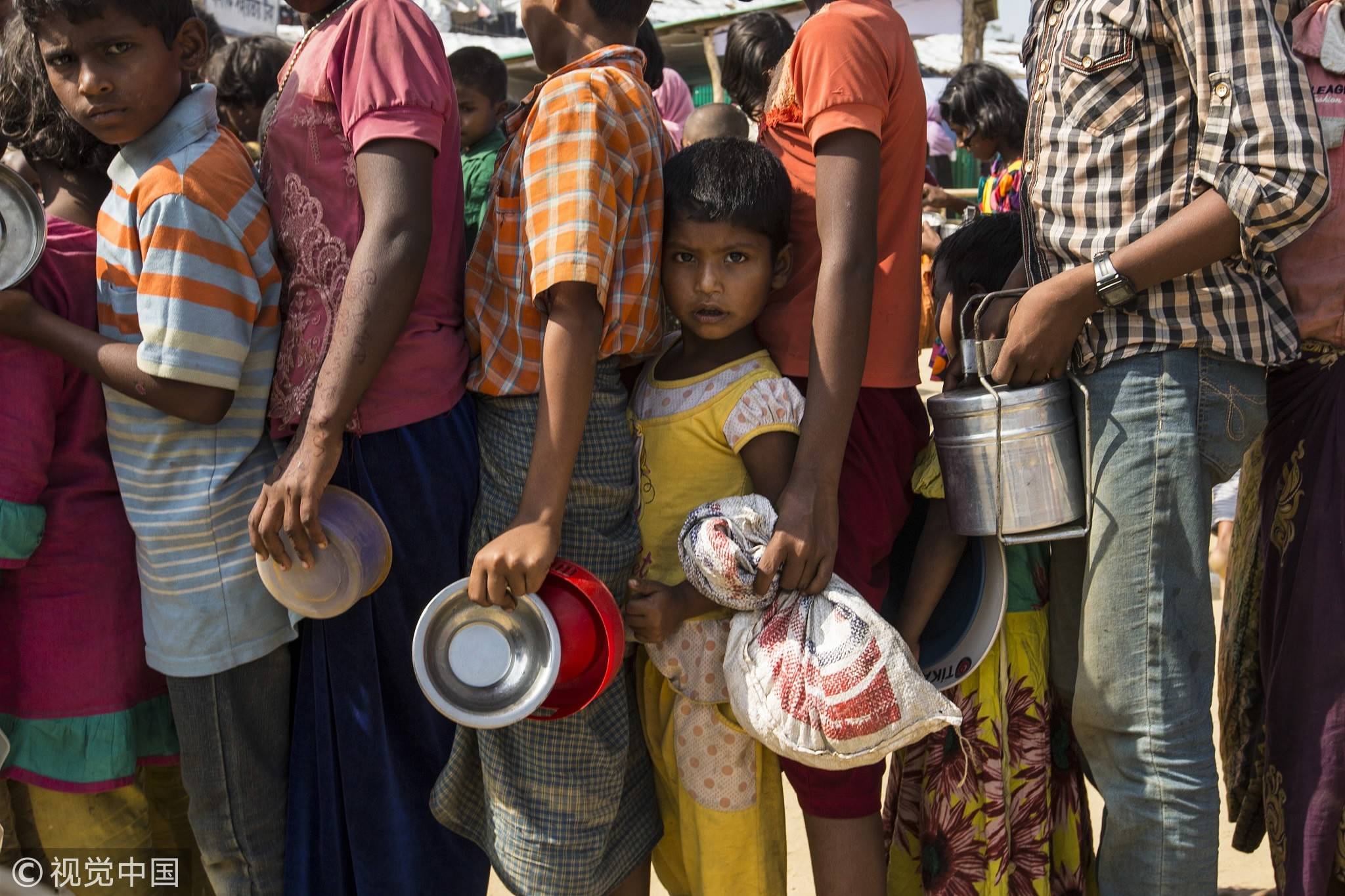
Tech & Sci
16:09, 01-Mar-2018
Low-cost Bangladeshi innovation at Rohingya refugee camp saves lives
Alok Gupta

Poor sanitation, the cause of a large number of deaths and hospitalizations at one of the world’s most dense refugee camps in Bangladesh, has found a low-cost solution. The innovation is also gaining popularity in other developing countries facing similar crises.
More than 700,000 Rohingya fled from Rakhine state in Myanmar and crossed the Bangladeshi border in the last eight months. They joined 200,000 refugees already living in similar camps in the area for the last five years.
While aid agencies and the government provided water, food and other facilities to refugees, the potential of infections spread by shallow pit latrines, largely escaped the attention of authorities.
The consequences were evident at the Cox Bazar’s - the largest refugee camp, IniKutupalong, bustling with more than a million refugees. Water-borne diseases hospitalized more than 59,000 refugees last rainy season, United Nations (UN) maintained.
“Outbreaks like cholera and other water-borne disease has already taken more than 100 lives in these camps,” Hasin Jahan, country director of Practical Action, a group that uses technology to eradicating poverty in Bangladesh told CGTN.
“Situation is turning serious with poor management of fecal waste that is making refugee sick and threatening to contaminate groundwater,” she added. The hilly terrain of the camp coupled with massive deforestation has further spread the contamination’s ambit.

Rohingya refugees wait in queue to receive food aid at Kutupalong refugee near Cox's Bazar, Bangladesh on Dec. 19, 2017. /VCG Photo
Rohingya refugees wait in queue to receive food aid at Kutupalong refugee near Cox's Bazar, Bangladesh on Dec. 19, 2017. /VCG Photo
Volunteers maintained greenery on the hills was cleared the way in order to establish more camps. During monsoon season, fecal waste from camps flows towards low lying areas spreading contamination ambit. Humanitarian agencies and government soon realized entire refugee population is trapped in infection spread by fecal waste.
Cholera is endemic in Bangladesh, and can quickly spread at an alarming rate infecting hundreds of thousands of people living in close proximity without proper sanitation.
The International Coordinating Group (ICG) on Vaccine Provision released around 900,000 doses of the Oral Cholera Vaccine (OCV) from the global stockpile to prevent the spread of cholera in the Rohingya relief camps.
Working on prevention rather than a cure yields positive results
The Bangladeshi government approached Practical Action for low-cost but effective fecal sludge management in the camps.
Government's plan was to contain water-borne infections to reduce pressure on hospitals and instead focus on large scale malnutrition and reduce the rampant spread of Diphtheria .
The organization experimented with a simple filtration system, through which fecal sludge is collected mechanically using suction pumps and discharged through a series of filtration chambers to separate liquids from solids.
“The effluent is finally treated by a natural process in a ‘constructed wetland’ through the roots of Canna indica plants. After a month, the digested sludge converts to become compost,” Jahan explained.
There is an abundance of Canna indica - commonly known as Indian shot or African arrowroot - in Bangladesh and sub-Saharan African countries. According to the UN, Kenya’s Kakuma refugee camp which has a maximum capacity of 70,000 residents, but by 2015, the population had risen to 183,000 is facing a similar sanitation crisis.
“Sanitation is a challenge because we are not able to allocate every family a latrine. In addition, water is scarce in the camp, but the situation is worse in the host community,” Emmanuel Ouko the Norwegian Refugee Council’s (NRC) Water Hygiene and Sanitation Coordinator.
“We are working with the authorities to extend access to the latter to enhance peaceful co-existence.” The camp is providing refuge to families fleeing conflicts in countries such as South Sudan, Somalia, the Democratic Republic of Congo and Sudan.
The Bangladesh model for human sludge management became a focal point during World Urban Forum (WUF) held in Kuala Lumpur recently. Jahan explained that a large number of urban cities are facing an influx of refugees.
“The fecal sludge management at these camps rarely finds a place in policies. Our experiment can be scaled up in developing African countries to save lives and ease pressure on hospitals,” Jahan added.

SITEMAP
Copyright © 2018 CGTN. Beijing ICP prepared NO.16065310-3
Copyright © 2018 CGTN. Beijing ICP prepared NO.16065310-3